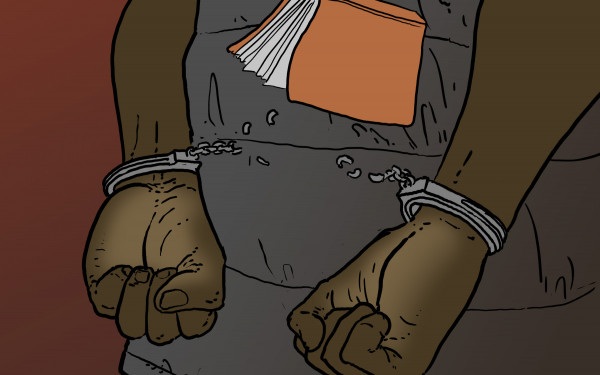Montreal as a Hub for Activism in the African Diaspora
Concordia’s Black Studies Conference Highlights the Life of Louise Langdon
A discussion on Montreal’s importance as a centre for the African Diaspora came not a moment too early, taking place two days after Donald Trump’s election as president of the United States—an event many qualified as a political earthquake.
The Nov. 10 lecture, presented by University of Illinois Associate professor in African American Studies Erik McDuffie, addressed the activist’s role in cementing the city’s Black activism community. The talk, titled “From Grenada to Montreal: Garveyism and the Diasporic Journeys of Louise Langdon,” was organized by Black Studies at Concordia, a group calling for the creation of a Black Studies program at the university.
Langdon was well known as the mother of Malcolm X, but also as a long-standing vehement Garveyist activist. Garveyism is a stream of Black Nationalism, which stemmed from the thoughts of the historical Marcus Garvey, a Jamaican political leader. She traveled from Grenada to Montreal—where she met X’s father—to Michigan. The main points of his ideology were pan-African unity and Black empowerment across the Western world.
“The key point here,” McDuffie explained, “is that [Langdon’s] story challenges the Canadian mythology, erasing Black people from Canadian history and giving an illusion of inclusion, as opposed to what is happening in the United States.”
Langdon arrived in Montreal in 1917. She lived in Saint-Antoine—today Saint-Henri—for three years. An active member of the still-existing Universal Negro Improvement Association, she helped strengthen and organize the Black community of Montreal, which amounted to approximately 230,000 persons, according to McDuffie.
Today, Montreal hosts the second largest African diasporic community in Canada. They began arriving in the city in the early 20th century. Three of the top five countries of origin, being the Democratic Republic of the Congol, Cameroon and Zaire, have French as sole or co-official language.
According to Concordia graduate Brenda Mae Paris, an activist and Montreal politician, the abundance of activists in Montreal created the ideal environment for the initiative to create a Black Studies program at Concordia.
“All study is Black study,” said Nene Konaté, an organizer of Black Studies at Concordia. “It permeates the whole history of our countries. Whenever we analyze the Black subject, we have to destabilize academic narratives.”
Langdon’s life and struggle comes as an example of why academia should evolve. “Let me tell you something: schools like this one don’t like bad public relations,” McDuffie said. “All of you, as students, have way more power to change this than you imagine.”
Langdon was essential to Montreal’s Black community, through the Maison de l’Afrique Montréal, a promotional centre of African and Caribbean culture.
“We wanted to create a cultural space that allows Africans and Africa-lovers in Montreal to gather. Here, we organize exhibitions, book launches, conferences,” said the centre manager Aboubakar Diawara. “We also have another mission here, which is to link Canadian businessmen with African countries.”
Black activism is very visible within the metropolis, but its dynamism depends on the community, Diawara said. The Burkinabe community is, to him, the one that focuses more on integration in Canada.
“They are trying to teach about their community, and to also teach within the community,” he said. The community, for example, invites Burkinabe individuals to speak about climate change, Diawara elaborated.
The landscape and openness of Black activism grounds Langdon’s work as an example. “It is especially important to talk about Langdon today,” McDuffie insisted. “Langdon provides a model for all of us to remain resilient, committed to Black freedom.”
“She was targeted and broken down by State violence,” he said, relating her life to the events unraveling worldwide. “Her official story stops when she was sent to a mental health hospital because she said she felt discriminated against, even though she got out and still lived more than twenty active years after that.”
“Langdon was not a victim,” concluded McDuffie, through a murmur of agreements. “She was a survivor.”

web_900_676_90.jpg)




_1_600_375_90_s_c1.jpg)
